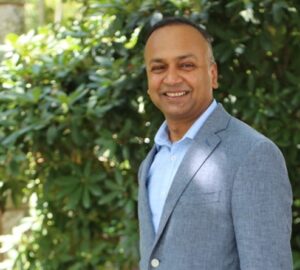- This event has passed.
ME Seminar Series: Vikas Srivastava
November 28, 2023 @ 3:30 pm - 4:30 pm
Experiments and Model for Dynamically Crosslinked Shear Rate Stiffening Soft Polymers

presented by
Vikas Srivastava
Howard M. Reisman
Assistant Professor of Engineering
School of Engineering
Brown University
ME Seminar Zoom link
Passcode 692510
Add ME Seminar to Google Calendar
Abstract
Dynamically crosslinked soft polymers are strongly rate-dependent materials that are gaining significant interest due to their energy absorption and self-healing abilities, and have the promise to be used for sensing, actuation, and lightweight body or structural protection. These entangled soft polymers change from viscous-fluid-like to rubbery and glassy-solid states during high-rate deformations due to the microstructural mechanics of reversible, dynamic crosslinks. Currently, there is a lack of experimental data and physics-based constitutive models for the large strain material response of these polymers over a broad strain rate range. I will present our theoretical framework and a microstructural physics-motivated constitutive model that describes the nonlinear large strain elastic-viscoplastic material response, rate-dependent stiffening and material state transformation of reversible dynamically crosslinked soft polymers over seven decades of strain rates. We have experimentally characterized the nonlinear large deformation response of a dynamically crosslinked soft polymer polyborosiloxane over a strain rate range of 10-3 to 104 /s. The polymer stiffness changes by four orders of magnitudes over this strain rate range. The proposed continuum model can predict the large deformation highly rate-dependent response of polyborosiloxane and provides insight into different dynamic crosslinking mechanisms. I will end the talk with brief notes about our recent works that integrate neural networks with mechanics to solve critical structural integrity problems, including convolutional neural networks (CNN) for accurate hidden crack quantification and (ii) physics-informed neural networks (PINN) for finite strain plasticity problems.
Bio
Dr. Srivastava is the Howard M. Reisman Assistant Professor of Engineering at Brown University. Dr. Srivastava received his Ph.D. in Mechanical Engineering from M.I.T. in 2010. Before this, he earned his M.S. in Mechanical Engineering and Applied Mechanics from the University of Rhode Island and his B.Tech. in Mechanical Engineering from the Indian Institute of Technology, Kanpur. Following his Ph.D., he worked at ExxonMobil Research organizations in various roles, including Senior Technical Professional Advisor in Mechanics, Marine and Mechanics Team Lead, and Worldwide Deepwater Drilling Coordinator. Dr. Srivastava joined Brown University in the fall of 2018. Dr. Srivastava’s research focuses on developing and applying continuum-scale solid mechanics theories, models, and experiments for engineering materials, structures, and biomedical systems.
